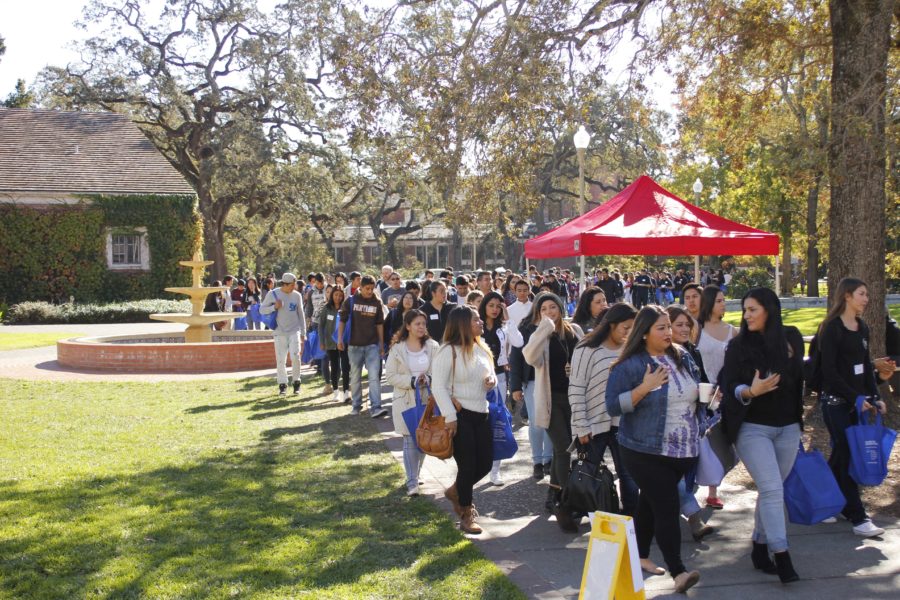It was a day filled with workshops, healthcare agencies and guest speakers for anyone interested in a career in mental health. Attendees had the opportunity to speak with different healthcare agencies and find out what they have to offer and discuss possible job and intern opportunities, Nov. 6 in the Bertolini Student Center dinning commons.
Rows of chairs surrounded by tables filled the rooms, inside and out of the dining commons, set up for different healthcare agencies to discuss the programs and services they offer.
Speakers of the day included Oscar Chavez, assistant director at Sonoma County Department of Human Services, and Susan Castillo, section manager at the Sonoma County Behavioral Health Division. Students had the opportunity to attend different workshops throughout the day and sample the resources around them in between the workshops.
Beth Karzes represented Forget-Me-Not Farm Children’s Services, a nonprofit animal assisted therapy program for kids in foster care and/or who have experienced violence at some time in their life. This program serves approximately 450 kids a year and has around 40 animals at their location. The children care for the animals, socialize with them and help grow and care for the gardens.
Representatives from the West County Health Centers spoke to students about their different clinics in Sebastopol, Gravenstein, Forestville and Guerneville. They also spoke about their services including dentistry and medical care; they have HIV and AIDs specialists, social workers and behavior health services. They will also offer services for the homeless, starting January.
“We’re really good about trying to help those who can’t afford [these services], or maybe who have some money and it’s not enough,” said West County Health Center representative Che’la Jernigan.
St. Joseph Health, a part of Memorial Hospital, had a station in the dining commons and discussed its services with attendees, such as the mobile clinic that goes around Sonoma County and treats people with minor medical conditions. It also administers health screenings, physicals, exams and immunizations.
St. Joseph’s also offers programs to help teachers incorporate physical activity into their curriculum, and a circle of sisters program for girls 9 to 14 to teach healthy life choices. Many of their services go out in to the community to help others.
“Our intent [is] to let people know we are out in the community,” said representative Leticia Romero.
The Sutter Health table, located next to St. Joseph’s table, discussed internships with guests.
“My main focus here is to try to attract students in some kind of health field, especially Latinos,” said Sutter Medical social worker Monica Robledo.
Xavier Nazario, University of San Francisco’s representative, spoke about the college’s popular marriage and family therapy program. The program was related to many things discussed that day and USF offers this program in downtown Santa Rosa. High school students participating in this program have the opportunity to get their masters degree, become therapists and give back to the community.
Along with many other agencies representing themselves that day, guests had the opportunity to explore different aspects of the healthcare field and discover what interests them.
“I was expecting to learn a lot about the medical field and health and [things involved in health], and I did,” said ROP high school student Giselle Fonseca.


